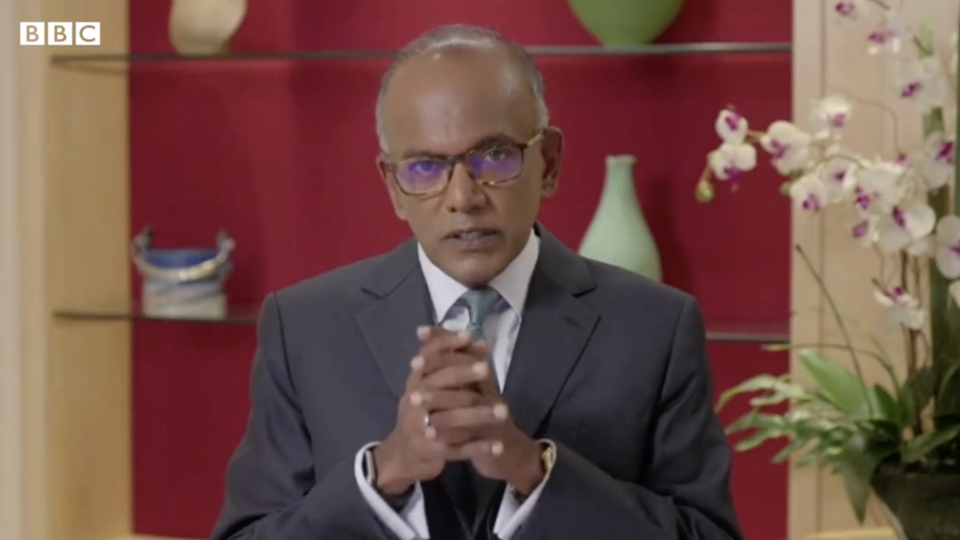Law and Home Affairs Minister K. Shanmugam defended Singapore’s controversial mandatory death penalty for drug-related offenses during a heated BBC interview that aired yesterday.
Shanmugam appeared virtually on BBC’s HARDtalk program in the wake of outrage and controversy sparked by the recent execution of several convicts despite widespread protests against them both international and local.
He told English presenter and journalist Stephen Sackur that capital punishment ultimately protects citizens given Southeast Asia’s “severe” drug problem.
“I don’t have any doubts. Capital punishment is one aspect of a whole series of measures that we have to deal with drug abuse problems,” Shanmugam said. “It’s imposed on drug traffickers, and it’s imposed because there’s clear evidence that it’s a serious deterrent for would-be traffickers.”
“Capital punishment…it’s a serious deterrent for would-be drug traffickers” says Singapore’s Home Affairs Minister
— BBC HARDtalk (@BBCHARDtalk) June 29, 2022
K Shanmugam says he doesn’t have “any doubts” about Singapore’s use of the death penalty despite controversyhttps://t.co/vCdYnprMfE
📻 https://t.co/qNUM1wR8Px pic.twitter.com/btWoie8R7T
Sackur brought up the high-profile case of Malaysian Nagaenthran K. Dharmalingam who was hanged earlier this year for trafficking over 40 grams, about three tablespoons, worth of heroin in 2010. An assessment by a medical expert found he had an IQ of 69, an argument used by the defense as evidence that he was intellectually disabled.
Sackur asked Shanmugam if this execution seemed “proportionate and compassionate” to him. Shanmugam replied saying psychiatrists confirmed he was not intellectually disabled and that he had the “workings of a criminal mind” and made a “deliberate, purposeful, calibrated and calculated decision.”
During one of the 20-minute interviews many heated exchanges, Sackur noted that Singapore currently has 60 prisoners on death row. to which Shanmugam clapped back by saying: “But we have also saved thousands of lives.”
“I think the key thing is the lives of Singaporeans and protecting Singaporeans,” he added.
Shanmugam went on to mention that while the BBC has paid much attention to high-profile cases of drug traffickers, they have never run an article about Southeast Asia’s “severe” drug problem, arguing that the region is “swimming in meth” and that one billion meth tablets have been seized in recent busts.
The minister also boasted about Singapore currently arresting 3,000 people for drug-related offenses annually, half from in the ’90s.
After Sackur digressed, they moved on to talk about the long-running battle to get Section 377A of the Penal Code aka the gay sex law repealed. Shanmugam said Singapore is reconsidering the law but couldn’t give a definite answer about whether it would be repealed in the future.
Shanmugam also answered questions about racism, agreeing that it exists in the city-state but arguing that it was “much less” compared to other societies.
Listen to the full interview here.
Other stories you should check out:
KOBEPI delivers unique halal Japanese-inspired pizzas and savory pies to Singapore
Yikes: Singapore police officer allegedly caught posing inappropriately beside dead body
Singapore’s Covid-19 infections reach recent high of 11,500 cases in a day, double previous day’s number




